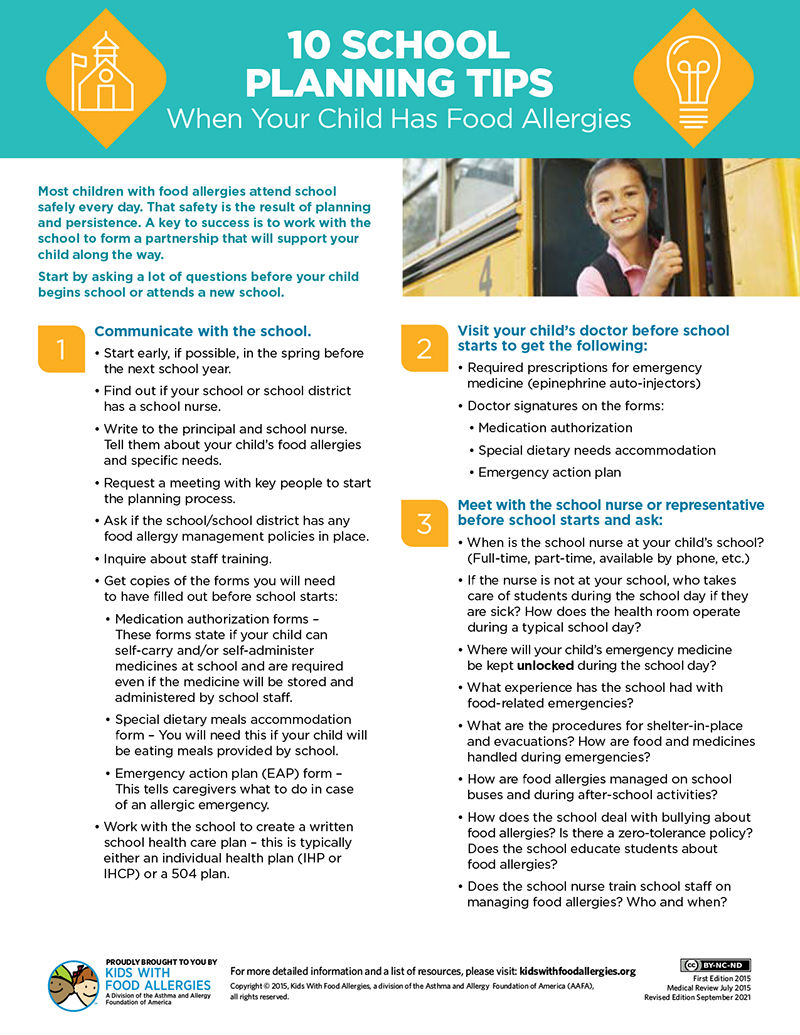Managing Food Allergies at School

Since about 4 million children in the U.S. have food allergies,1 many schools already have processes in place to manage them. But each school and each child’s needs are different. With proper planning and partnering with your child’s school, you and the school staff can create a healthy learning environment for your student.
When your child with a food allergy starts school, you will probably have many questions, such as:
- How will the school staff help my child avoid allergic reactions?
- Will they be exposed to their allergen?
- Will they have quick, easy access to their epinephrine? Can they self-carry their epinephrine?
- How will class parties and field trips that involve food be handled?
- How will the school manage a severe allergic reaction (anaphylaxis)?
To prepare for each school year, Kids with Food Allergies (KFA) recommends you follow certain steps. Make them part of your annual school routine. You may not need to follow each step every year as your child gets older and learns to self-manage their food allergy. Use these steps as a guide as you work with your child’s school.
 Team Up with Your Child’s School to Manage Their Food Allergy
Team Up with Your Child’s School to Manage Their Food Allergy
You and your child’s school have the same goal: for your child to have a quality education in a safe environment. Partnering with your child’s school is vital when it comes to successfully managing their food allergy.
Start by contacting your child’s school about their food allergy in writing. Ask for meetings with school staff who will be part of the planning process. This often includes the school or district nurse, the primary teacher, or sometimes the principal.
Throughout your child’s schooling, you will work with the school and district staff. Approach it with a positive mindset and tone.
It’s also important to teach your child, in age-appropriate ways, how to manage their food allergy. This may mean learning how to recognize when they are having symptoms, knowing how to wash their hands properly, or other steps to take to prevent allergic reactions.
 Prepare for the Next School Year Well Before the First Day of School
Prepare for the Next School Year Well Before the First Day of School
Planning for your child’s care at school can take some time. Each year, start preparing for the next school year early. Spring is usually the best time to start, especially since some prep will probably continue into the summer. If your child will need accommodation, start that process at the beginning of the calendar year (January or February) when possible.
Here are some of the steps you’ll want to take during the spring and summer to prepare:
- Talk with the school to start the process to create or update your child’s school health care plan.
- Get copies of the forms you will need to have filled out before school starts and turn them in before the first day of school.
- Meet with your child’s doctor over the summer to have school forms signed and prescriptions refilled.
- Meet with school staff who will be with your child during the school day.
At the end of the school year:
- Pick up unused medicines on the last day of school and check expiration dates.
Related Resources
 Work with the School to Create a School Health Care Plan
Work with the School to Create a School Health Care Plan
Every student with food allergies should have a school health care plan. This plan lists your child’s allergies, common symptoms, medicines, and what to do if they have symptoms. It may also outline what school staff should do to prevent allergic reactions.
Three of the most common types of school health care plans are:
- Emergency care plan (ECP)
- Anaphylaxis Action Plan
- Asthma Action Plan
- Individual health care plan (IHCP or IHP)
- Section 504 accommodation plan (also known as a “504 plan”)
The student’s parents/guardians, the school staff (typically school or district nurse), and the child’s primary care (such as a pediatrician) or specialist care clinicians (such as an allergist) will work together to create or update the school health care plan. Work together to figure out the best type of care plan for your child.
When you meet with the school, discuss:
- Your child’s allergies and other health conditions
- Your child’s symptoms and their Anaphylaxis Action Plan
Also ask about:
- The school’s existing food allergy management policies
- What the staff will do if your child has symptoms and if there is an emergency
- The process for creating and submitting forms and a school health care plan
- Where epinephrine will be kept
- If the school provides staff training on food allergies
- Cleaning and handwashing practices
- How the school manages meals in the cafeteria, lunch area, or classroom for students with food allergies
- How students with food allergies request meals with safe substitutions
Related Resources
- School Health Care Plans for Food Allergies (IHCPs, ECPs, and 504 Plans)
- Section 504 Plans for Children with Food Allergies
- Anaphylaxis Action Plan from the American Academy of Pediatrics (printable PDF)
- School or Child Care Asthma/Allergy Action Plan from the Asthma and Allergy Foundation of America (printable PDF)
 Connect with Your Child’s Teacher and Other Staff Your Child Will See During the School Day
Connect with Your Child’s Teacher and Other Staff Your Child Will See During the School Day
Set up a meeting with your child’s teacher(s) to talk about classroom management of food allergies after you have met with the nurse or school representative.
Talk with them about:
- Food and allergen control strategies in the classroom and during “specials” such as music and art
- How to handle classroom celebrations and field trips
- How substitute teachers will be notified about your child’s needs
Depending on the school and your child’s needs, you may also meet with other teachers, the school principal, food services director, and/or athletic director.
Related Resources
- Non-Food Rewards for Children with Food Allergies (includes printable PDF)
- Potential Food Allergens in Preschool, School, Camp Crafts, and Activities (includes printable PDF)
 Teach Your Child Age-Appropriate Skills to Help Them Self-Manage Their Food Allergy
Teach Your Child Age-Appropriate Skills to Help Them Self-Manage Their Food Allergy
Teach and encourage your child to manage their food allergy as they grow. These skills may include:
- Carrying and using their own epinephrine
- Recognizing symptoms of an allergic reaction
- Telling an adult when they are having an allergic reaction
- Proper handwashing
- Reading food labels and choosing safe foods
- Riding on a school bus and going on field trips
- Reporting food allergy bullying or harassment
Talk with your child’s doctor about whether your child is old enough to self-carry and use their epinephrine on their own.
Related Resources
- Anaphylaxis (Severe Allergic Reactions)
- Epinephrine Is the First Line of Treatment for Severe Allergic Reactions (Anaphylaxis)
- Choosing Safe Foods: How to Read Labels So You Can Avoid Food Allergens
- When Is a Child Ready for Self-Care of Anaphylaxis?
 Understand Your Child’s Rights Under Federal and State Laws
Understand Your Child’s Rights Under Federal and State Laws
There are 3 federal laws that protect students with food allergies:
- Americans with Disabilities Act (ADA)
- Section 504 of the Rehabilitation Act of 1973
- Individuals with Disabilities Education Act (IDEA)
Under the ADA and Section 504, a food allergy may be considered a disability depending on how severe it is. The IDEA and Section 504 ensures children with disabilities have access to “free appropriate public education.” These laws allow you to work with your child’s school to get reasonable accommodations for your child.
Check with your state to see if they have laws that protect your child and their right to education. For example, your child also has the right to carry their own epinephrine. If your child will carry their own epinephrine, be sure to have paperwork on file at the school signed by your child’s doctor that says they can self-carry. Every state has laws allowing children to self-carry their own medicine (opens aafa.org).
Related Resources
- State Honor Roll from the Asthma and Allergy Foundation of America: School Policies by State (Visit aafa.org)
- Are Asthma and Allergies Disabilities? (Visit aafa.org)
- Americans with Disabilities Act (ADA) (Visit ada.gov)
- Section 504 of the Rehabilitation Act of 1973 (Visit ed.gov)
- Individuals with Disabilities Education Act (IDEA) (Visit ed.gov)
Managing a Move to a New School
Each school has a different way of managing food allergies. And as your child moves through each grade level, their needs will also change. Revisit the school planning process each time they change schools, whether they are moving from elementary school to middle school to high school or they move to a new school and/or district.
Within a given school district, 504 plans must be reviewed at least every three years (unless the parents and agency agree it is not required). Or they should be reviewed as often as once a year if the situation changes or the parent or teacher asks for re-evaluation.2 When a student moves to a new district, the new district must review the plan. If they decide the plan is still appropriate, they must follow it. If not, they must evaluate the student and develop a new plan.2
When your child moves to a new school and/or district, follow the steps above and adjust them to best suit your child’s age, skill level, and needs.
Sending Your Child with Food Allergies to College
When choosing a college, consider their food allergy policies along with their educational offerings. Colleges vary greatly in how they handle food allergies.
It’s important to support your teen with growing independence. In the college setting, your student will have to request any accommodations and manage their food allergy. Your student should contact the college’s disabilities services department to ask how the school can accommodate them.
Some schools require students living on campus to enroll in a school meal plan. If your student will eat on campus, they will need to speak with the food services director about accommodations.
If your student will be cooking their own food in the dorm, ask if the dorm has a kitchen, what types of appliances are available, where it is located, and what cooking appliances your child is allowed to bring. If your child needs special accommodations to cook in the dorm, talk with the disabilities services department.
Even though colleges that get federal funding must follow Section 504 and the ADA, they are held to a different standard than elementary and secondary schools. They do not have to follow your prior 504 plan. If you ask for accommodations that would cause them to change their programs or create undue burden, the college may be able to say no to your request.3
Food Allergy Fact
Millions of children with food allergies attend school safely every day.
Reviewed August 2024 by Adrianna Del Principe, Esquire
Closed
References
- Zablotsky, B., Black, L.I., & Akinbami, L.J. (2023).NCHS Data Brief, no 459: Diagnosed allergic conditions in children aged 0-17 years: United States, 2021.National Center for Health Statistics. https://dx.doi.org/10.15620/cdc:123250
- U.S. Department of Education, Office for Civil Rights. (2023, July 18). Protecting students with disabilities. https://www2.ed.gov/about/offices/list/ocr/504faq.htm.
- U.S. Department of Education, Office of Special Education and Rehabilitative Services. (2020, August). A Transition Guide to Postsecondary Education and Employment for Students and Youth with Disabilities. https://sites.ed.gov/idea/files/postsecondary-transition-guide-august-2020.pdf/.
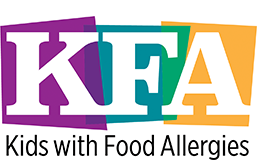







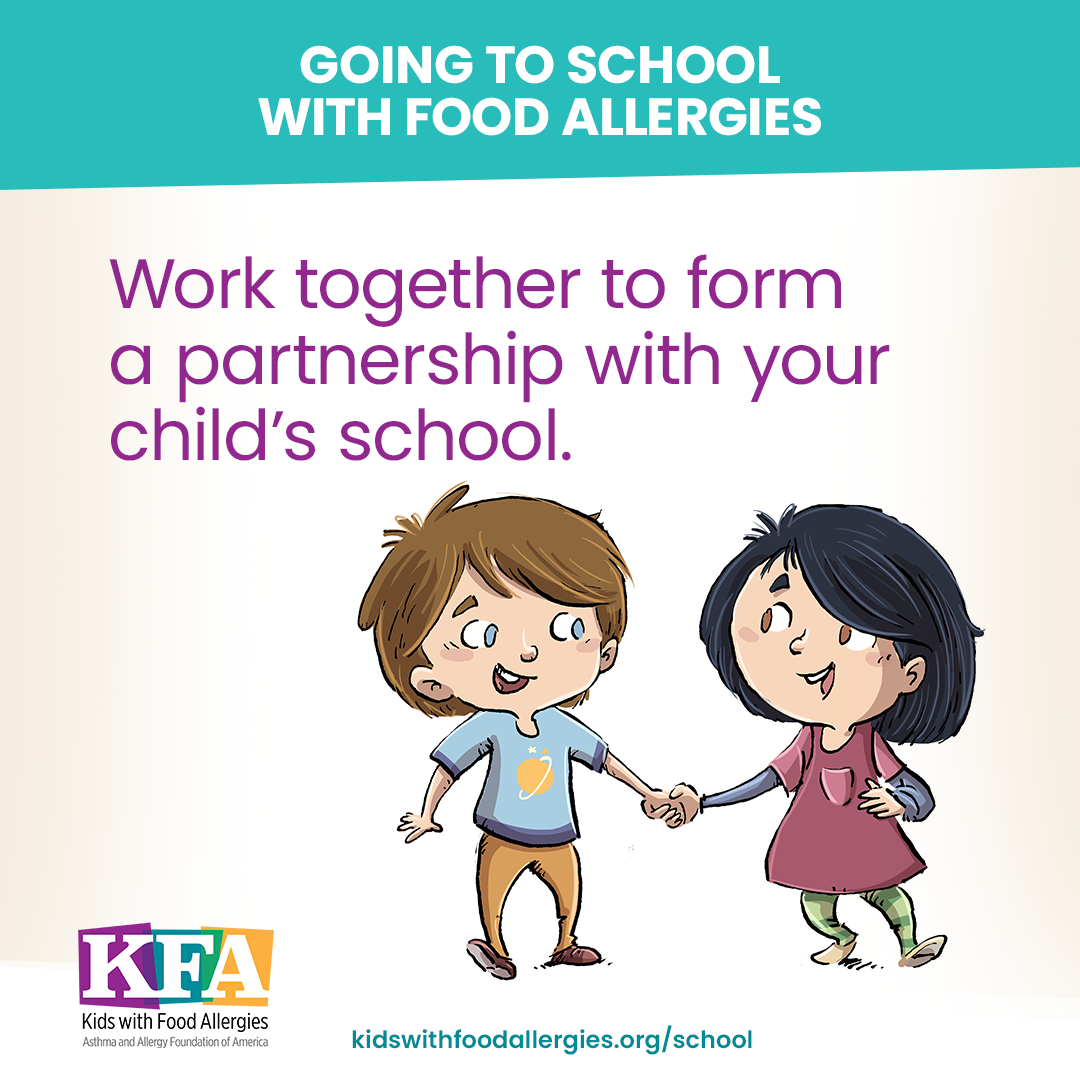 Team Up with Your Child’s School to Manage Their Food Allergy
Team Up with Your Child’s School to Manage Their Food Allergy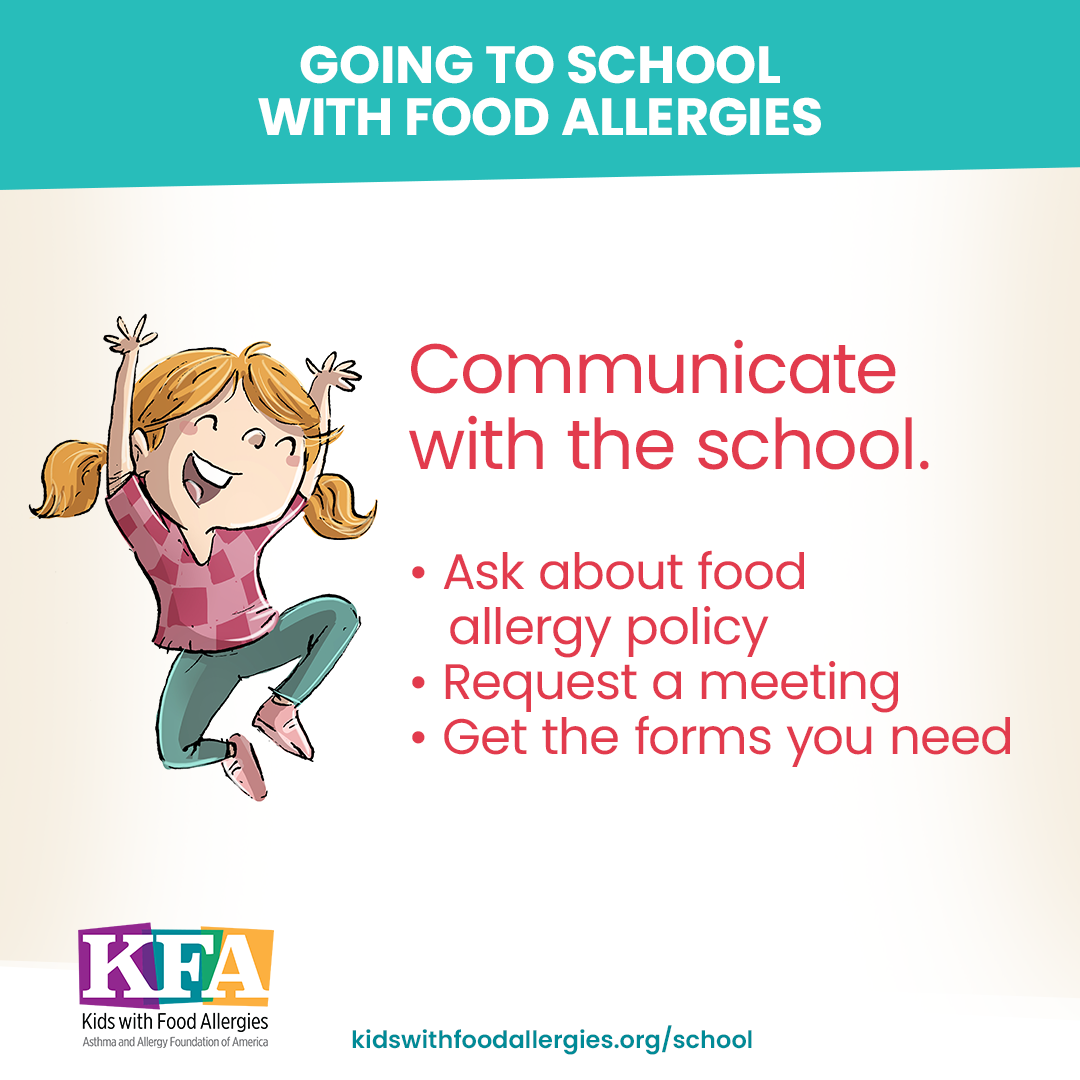 Prepare for the Next School Year Well Before the First Day of School
Prepare for the Next School Year Well Before the First Day of School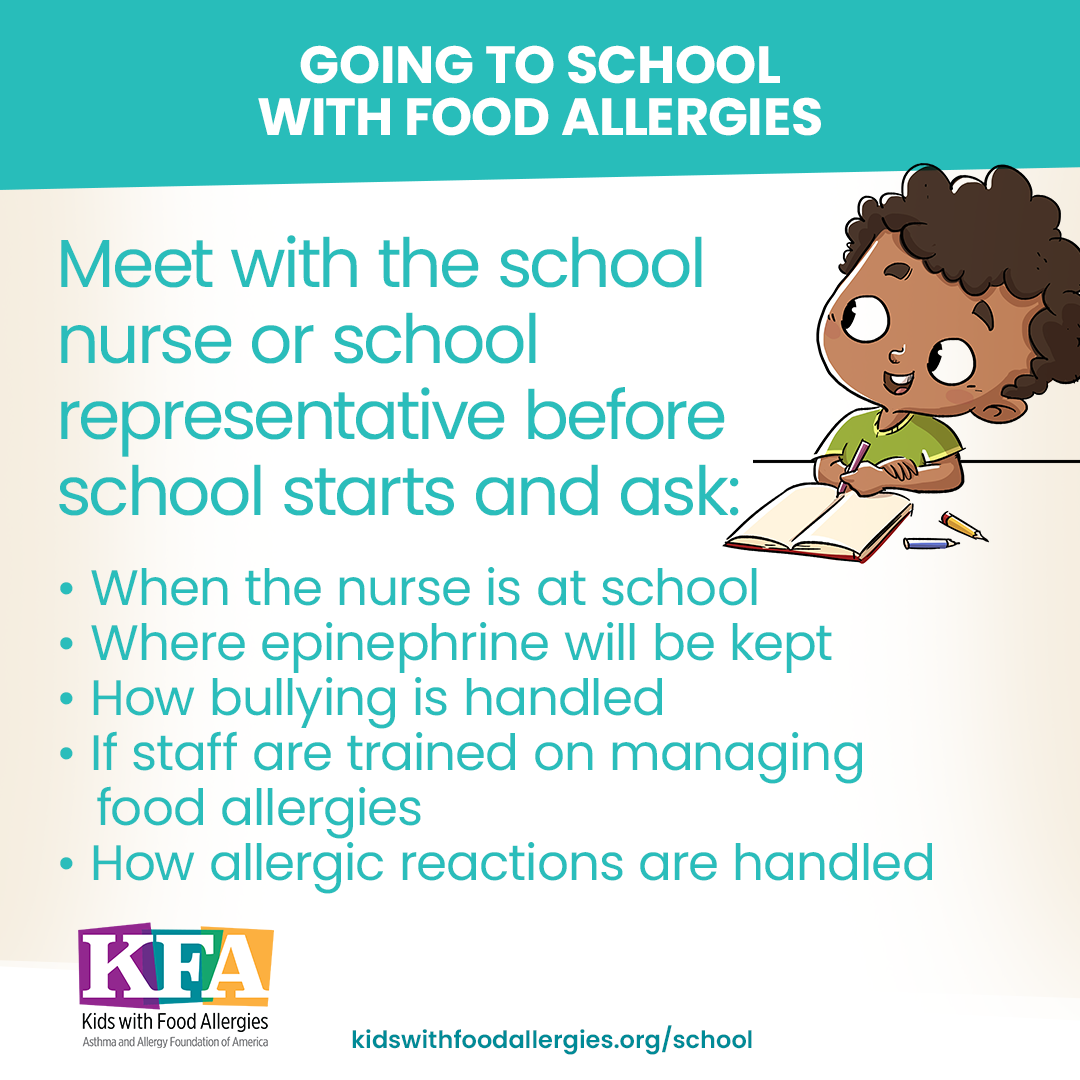 Work with the School to Create a School Health Care Plan
Work with the School to Create a School Health Care Plan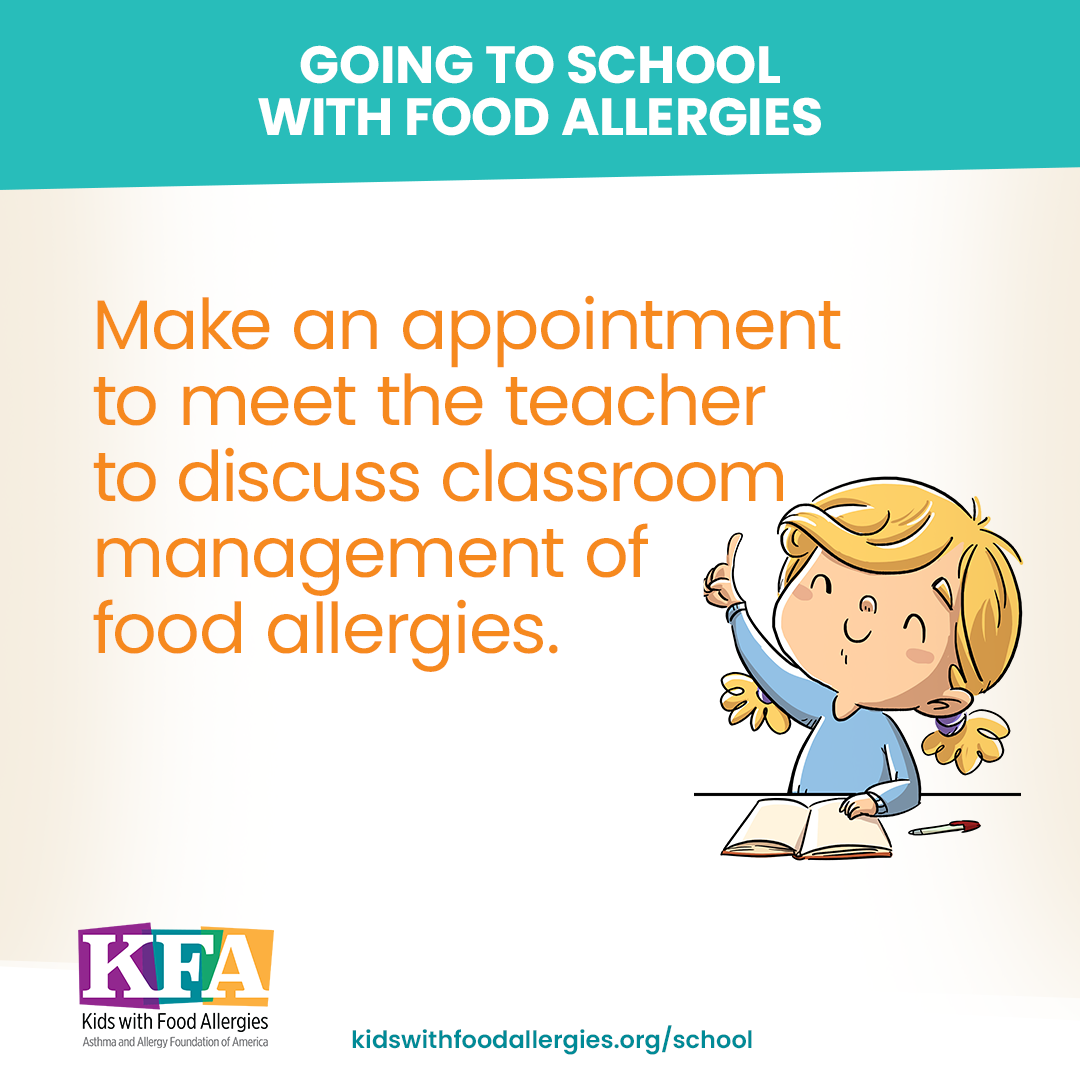 Connect with Your Child’s Teacher and Other Staff Your Child Will See During the School Day
Connect with Your Child’s Teacher and Other Staff Your Child Will See During the School Day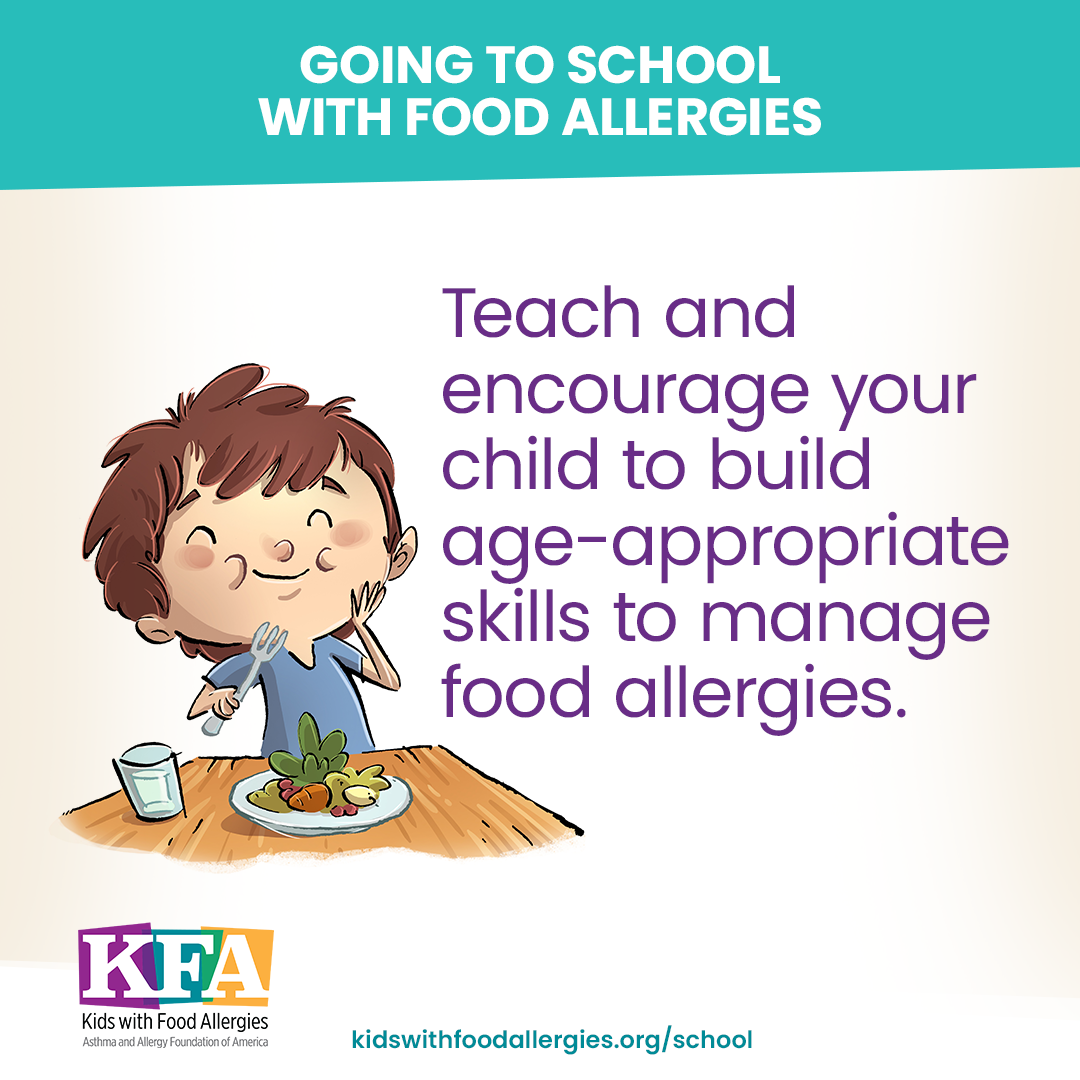 Teach Your Child Age-Appropriate Skills to Help Them Self-Manage Their Food Allergy
Teach Your Child Age-Appropriate Skills to Help Them Self-Manage Their Food Allergy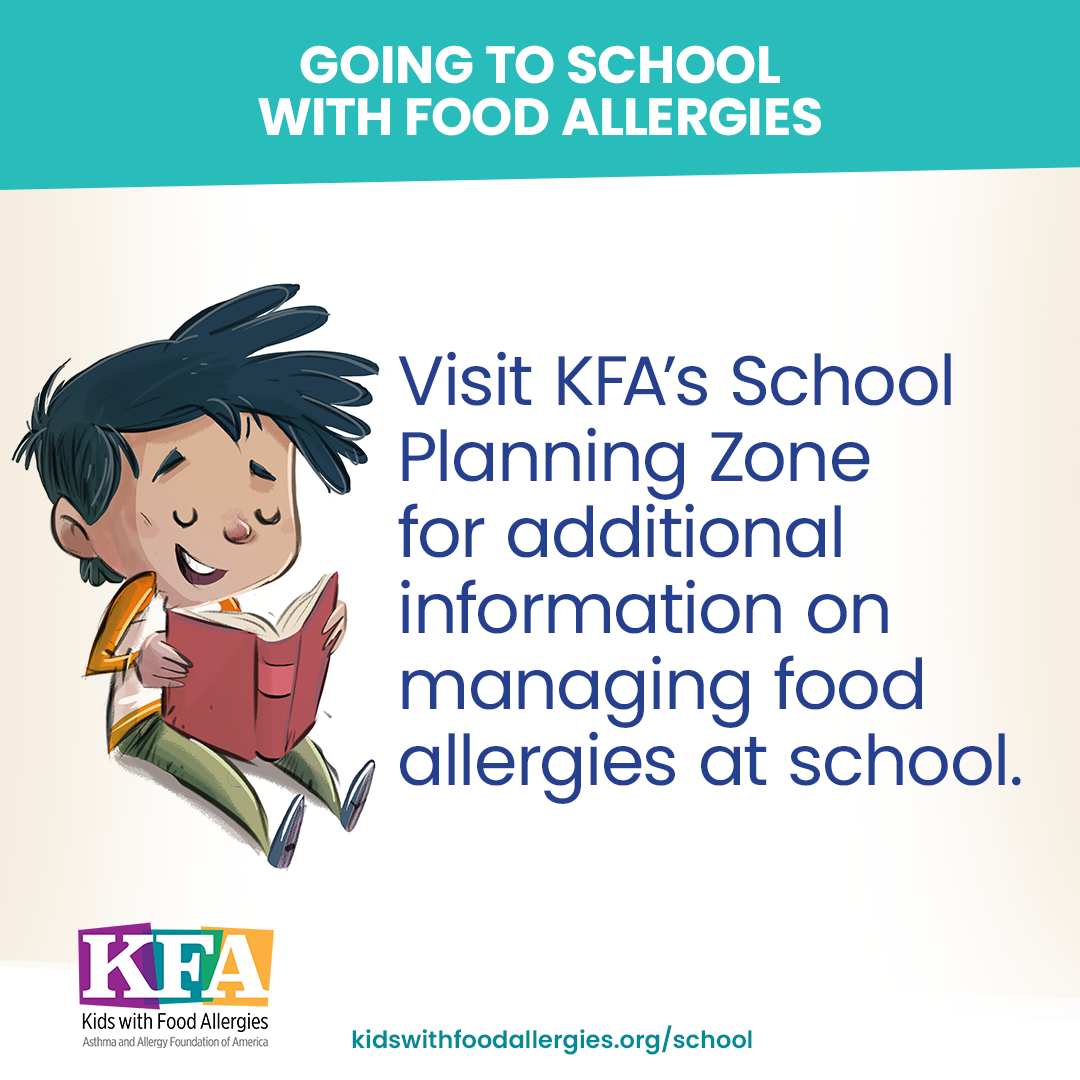 Understand Your Child’s Rights Under Federal and State Laws
Understand Your Child’s Rights Under Federal and State Laws
